
Censorship is bad for business
Plus, order restricting Natanson search didn’t go far enough

Plus, order restricting Natanson search didn’t go far enough


Öztürk deportation case among America’s most blatant press freedom violations

Plus: A journalist’s fight for transparency in the U.S. Virgin Islands

Plus: Alex Pretti’s murder was also an attack on press freedom

Also: Judge halts search of records seized from Washington Post reporter

Don’t forget last week’s alarming intrusion on newsgathering
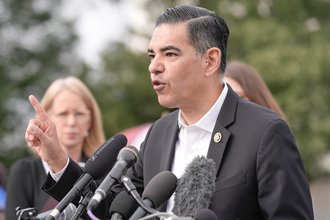
FPF lawsuit sheds light on ICE surveillance
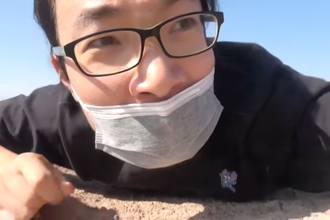
Stop the deportation of Guan Heng

The Trump administration is trolling America with its FOIA responses
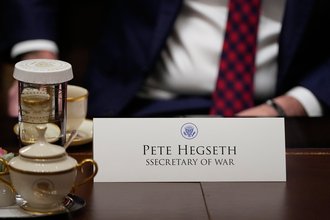
FPF demands court lift secrecy in Herridge privilege case

DHS targets journalists for speaking out about Gaza

Plus: FPF advocacy helps open immigration courts to press


Plus: Shutting down the government doesn’t shut down the First Amendment

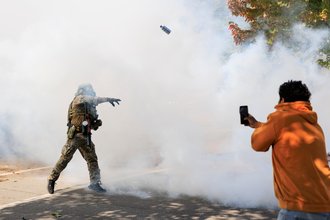
Plus: Administration ignores flotilla abuses

Plus: Tell your lawmakers to strengthen presidential library transparency

Plus: Journalist Mario Guevara has been deported

Plus: How noncitizen journalists can prepare for ICE

Plus: U.S. embassies put diplomacy up for sale
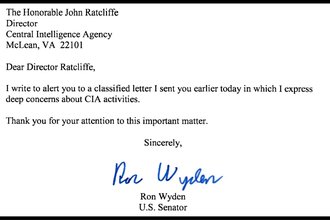
Plus: The State Department is purging its X accounts. That will only make diplomacy harder

Plus: The Trump ‘library’ grift continues

Congress needs to get serious about body cameras. Here’s two ways it can

Plus: Declassification board pushes for release of 9/11 records

Plus: Administration releases partial legal rationale for Venezuela strike
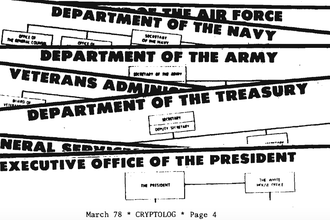
Plus: Trump administration continues reliance on secret law to justify potentially unlawful actions

Plus: Remembering Dr. William Burr, nuclear scholar and declassification expert

Plus: Kristi Noem’s agency insists she’s never sent or received a direct message on Truth Social
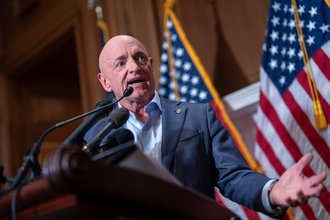
Plus: IRS says it will take eight months to search for an email
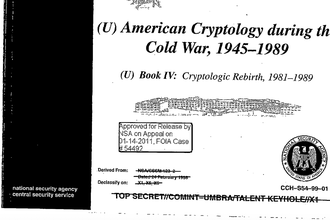
Plus: Let’s call DHS what it is — a domestic spying agency.

Plus: Public records give the DOJ two black eyes this week

Plus: FOIA requests we filed this week and why we’re sharing

Plus: The case for making public records-based reporting free

Plus: Tell Congress that FOIA must apply to ICE’s secret prisons

Plus: Secret law provides cover for more killings

Plus: There shouldn’t be secret law. Pam Bondi didn’t get the memo
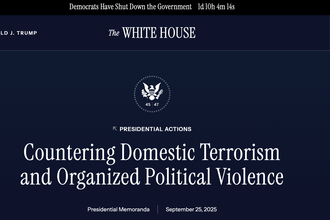
Plus: How is the FBI responding to FPF’s FOIA requests? Not well.

Plus: New report shows classification mistakes are rampant
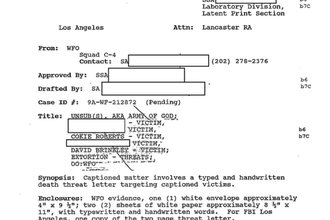
Plus: 9/11 records turn 25 next year. They should be automatically declassified.

FPF’s Harlo Holmes offers advice on 404 Media podcast

Lockdown Mode is not just for dealing with remote malware — it also appears to shut down some forensic devices.

We’re showing our favorite digital security tools some love in our newsletter this week. Read up on why we love security keys.

Let’s appreciate all that passcodes do for us by sending this week’s Valentines to them and their natural home, the password manager.

As heart-shaped chocolate boxes fill store aisles, allow us a moment to write a love letter to one of our favorite tools: Signal.

Confer is an open source, end-to-end encrypted chatbot.

If you got one of these emails, you weren’t alone.

Even if you don’t live in the Golden State, there are things you can do to opt out of invasive data broker companies.

How might Chrome put guardrails on AI ‘agents’?

The Pentagon inspector general’s report gives more details on the incident than ever before.

To protect your sensitive conversations, you’ll need to make sure your device is safe.

Researchers discovered phone numbers and, in some instances, associated profile photos and names through WhatsApp’s contact discovery tool

Data breaches are an unfortunate fact of modern life. While we can’t always control the security of the apps and services we use, there are some steps we can take to limit how much of our data is out there.

The names, email addresses, and chat histories of over 17,000 employees and external business contacts in the company’s Slack system were exposed thanks to one infected computer.

Despite their growing presence, AI-powered browsers aren’t ready for prime time when it comes to security

Online scamming has become an industry.

State-sponsored hacking collectives are myriad, but let’s focus on one

If you are traveling to the U.S. soon, you can be forgiven if your mind starts racing and the words on your screen start blurring together

That unsettled feeling you get when you are served an all-too-accurate advertisement? Data brokers at work

With Windows dropping support for Windows 10, you’ll need to upgrade — or consider another operating system entirely!

Check out the latest updates to our digital security 101, authentication, and malware modules.

We’ve made updates to our “Digital security 101” module, and more.

Check out the new resource pack for our “Digital security 101 — Crossing the US-Mexico border” module.

On the heels of our new module focused on U.S. southern border journalism, we are happy to announce a range of additional updates to modernize the rest of the J-school curriculum.

We’re thrilled to announce a new module focused on U.S. southern border journalism

Well, at least there’s a lot of stuff to talk to your class about

We’ve added new slides to our Malware module to help instructors get started sharing the good word about Dangerzone.

Hello again!It’s Martin, principal researcher at Freedom of the Press Foundation (FPF), with our regular update on the U.S. Journalism School Digital Security Curriculum.J-school security curriculum highlightsTo account for new username and privacy options in recent versions of Signal, we made some small changes to the …

Hello again!It’s Martin, principal researcher at Freedom of the Press Foundation (FPF), with our regular update on the U.S. Journalism School Digital Security Curriculum.Before we jump in, I want to share that we’re hiring a Monitoring, Evaluation, Research, and Learning (MERL) consultant to help us develop a …
Join our email list to stay up to date on the issues and learn how you can help protect journalists and sources everywhere.
Thanks for signing up for our newsletter. You are not yet subscribed! Please check your email for a message asking you to confirm your subscription.

